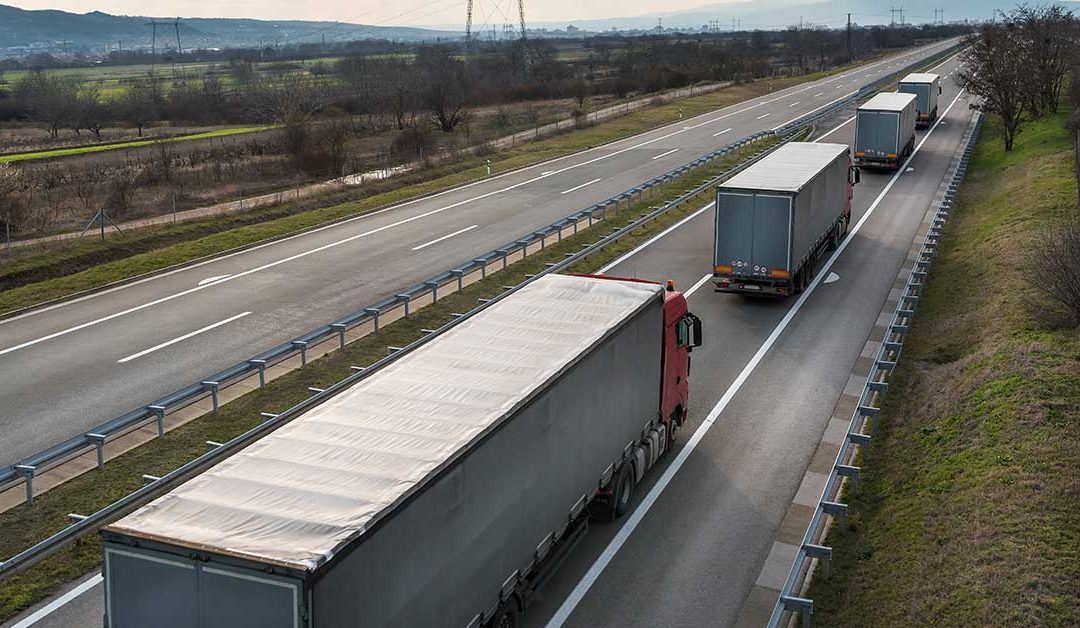Commercial Truck Insurance Explained
Whether you run a large trucking company or you’re an independent driver leasing a truck, a reliable truck insurance provider customizes your policy based on the potential risks your business faces on the road. Despite the size of your fleet, truck insurance protects you and your bottom line. If you’re an established company in the industry or looking to start your trucking business, read on to learn more about commercial truck insurance, what it covers, what it doesn’t cover, and how you can find the right policy to fit your needs.
What is Commercial Truck Insurance?
Many states require liability truck insurance as part of obtaining a trucking license. Why? The Department of Public Safety views insurance as a necessity to protect other drivers and vehicles from damage caused by your truck after an accident. In a nutshell, commercial truck insurance is a combination of auto insurance policies designed to cover the specific needs of your trucking business. To understand the particular policy, you’ll need for your company, here’s a list of some of the common types of coverage:
General Liability: If you or your driver makes a mistake in delivering a load or something happens while you’re at a loading dock, this policy will protect your business. General liability is most helpful if you’re the owner-operator of a trucking company. This policy also offers additional protection in the case of a lawsuit against your business.
Primary Liability: Won’t cover your truck but covers the damage done to other vehicles on the road in case of an accident. Primary liability is excellent if you’re an independent driver.
Physical Damage: In case of an accident or theft, this type of coverage helps with repair bills and will also help you replace stolen equipment.
Non-Trucking Liability: Say you’re not under dispatch. Non-trucking liability covers damages and injuries to other drivers and vehicles.
Motor Truck Cargo: Protects your cargo from theft, refrigeration breakdown, and other risks when you’re working on the road.
Trailer Interchange: This will cover a non-owned trailer used under a trailer interchange agreement.
Medical Payment: Covers you or your passenger’s medical bills after an accident.
Uninsured/Underinsured Motorists: If another vehicle hits you and the driver doesn’t have liability insurance to repair the damages to your truck, this type of coverage will protect and give you peace of mind on the road.
What Does Commercial Truck Insurance Cover?
Knowing the coverage you receive under general liability will help you determine what other policies you’ll want to add to fit the needs of your business. Here are some of the basic coverages under a general liability policy in case your truck is involved in an accident:
- Bodily Injury: If another driver is injured, a general liability policy will cover medical bills and ensure you if there’s a lawsuit.
- Property Damage: Covers the cost to fix or replace someone else’s damaged property.
- Damages at Other Locations: General liability will cover the cost if you or your driver causes damage to property at a loading dock or truck stop.
- Litigation: In the event of liable, slander, or false advertising litigation against your company, general liability covers you.
What Other Types of Coverage are Available?
A general liability policy won’t cover all your needs, but there are endorsements you can add to cover a long list of possible scenarios. Here are some examples to consider:
- Vehicles That Aren’t Trucks: With commercial truck insurance, vehicles such as buses, passenger vans, and even ice cream trucks aren’t covered under a general liability policy. The same goes for limos and hearses. Fortunately, if your business utilizes any of these vehicles or you’re looking to expand the services you offer to customers, there are endorsements you can add to your policy.
- Injuries to the Driver: General liability will pay for the medical bills of everyone else except for your driver. Consider a worker’s compensation insurance plan to protect and care for your people to cover a worker’s injuries.
- Damages To Trucks: General liability covers the cost of damage to other vehicles. Obtaining physical damage coverage will ensure your trucks in the event of an accident.
- Losses Due to Broken Refrigeration: If your trucking company is in charge of delivering perishable products that must be temperature controlled, then you know the considerable risk that broken refrigeration poses to your business. You will need an endorsement that covers replacement and cargo loss in case the cooling component in your truck breaks down.
- Loss Of Income After an Accident: Business income insurance is a great way to cover your loss of income if your truck is involved in an accident and will take some time to repair at the auto shop.
Where Can You Buy Commercial Truck Insurance?
As a rule of thumb, to find the right commercial truck insurance policy, you’ll want to identify what type of insurance your business needs and gather the necessary documents before shopping around. When weighing your options, consider qualities such as coverage options, pricing, financial rating, and customer satisfaction.
Need Help Finding Commercial Truck Insurance?
If you’re looking for truck insurance or want to learn more on how you can save on your existing policy, call Brother’s Insurance today at 516-246-5835 and see how we can help you.

